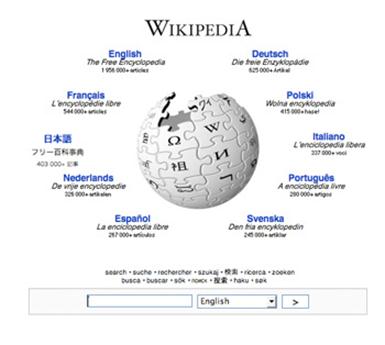The morning edition of Times of India got me started. It had an article on how Justice Katju made history when he made a Wikipedia page on ‘Live-in relationships’ as the basis to formulate a four-point guideline for his judgment on a case. The story goes on to say that the judicial community is shocked “For, Wikipedia, as everyone knows, is an online free-content encyclopedia that anyone — from the wisest to a vandal — can edit and contribute to.” (itals are mine).
The article goes on to quote a part of Wikipedia’s terms of conditions: “Wikipedia itself answers the question ”who is responsible for the articles on Wikipedia” by saying ”You are!”. It clarifies that articles on its web pages could have an authenticity problem. ”Given that anyone can edit any article, it is, of course, possible for biased, out of date, or incorrect information to be posted,” Wikipedia says rather candidly.’
The first phrase that gets my eye here is ‘YOU ARE’. Why is a collective anonymous community, which has no reputation/authority in the traditional media / publishing of books such a big threat to those who are in authority? Are we so cynical that we would assume that people writing/editing these pages would necessarily have an ulterior motive? If yes, then so do people who make printed versions of encyclopedias, specialized books on any topics whatsoever – be it historians, biographers, critics, scientists – everyone writes their own opinions in the story. Dead words printed on dead trees, that too by a single author cannot have more value than a regularly updated, dynamic space of knowledge.

That makes me come to the second thing which makes those in authority especially uncomfortable: The idea of knowledge. Traditionally, India has been a society in which knowledge is a source of power—political, social, religious, cultural. Knowledge about a particular dance form, a ritual, a state dinner, a political rally, a caste, a language, a culture (dead or alive)—all of these are held onto the chest, carefully guarded and religiously maintained. I think I would be right to assume that this is true world-wide as well. But in India it holds special importance because we are always told not to question those with knowledge. It is the reason why teachers are traditionally revered in our books.
Possessing knowledge about something is a source of power. When knowledge becomes collective, that power is lost. What would a teacher teach if the student has already read upon the topic on Wikipedia? How about if religious priests are replaced with a Wikipedia page which tells us stories from mythology? Why do we need that teacher or that priest who cannot add more to what we already know.
In a way, it’s a complete overhaul of our systems of how knowledge is disseminated. Internet has made it possible for knowledge to be everywhere, given by everyone, taken in by anyone. There are no specializations in this space. There are also no authorities who can write something which has to be accepted and parroted everywhere. When anyone can question and anyone can answer, it’s a much more dangerous, varied world than the linear dissemination of knowledge which has traditionally been there.
Hence the panic. There’s no herd and no shepherd anymore.
Hence the derision by the shepherds of the world for an open space like Wikipedia.
I can go on and on about this topic but would like to invite your opinions on this. Here’s a small poll to know what you think about spaces like Wikipedia.
- Love it. Would use it to quote in my term paper.
- Would read, question and then cross check from some other source.
- Suspicious. Who’s writing this stuff anyways?
-
Should be banned. It’s a place to promote half-truths and biased opinions
Cheers!
Crossposted at the Digital Natives blog here.
